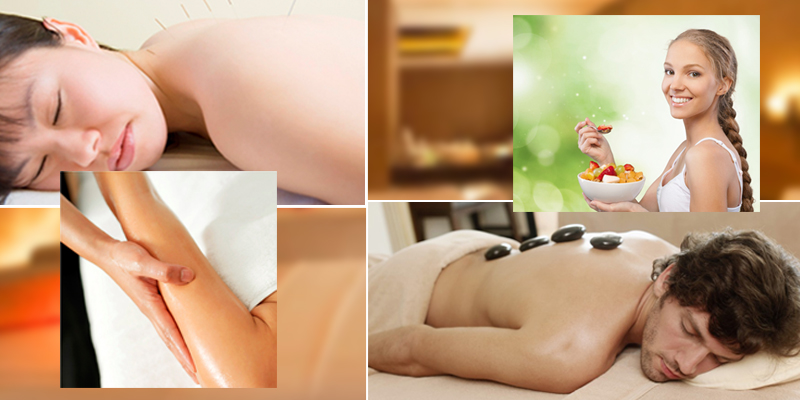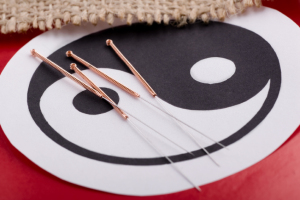
Naturopathy Care For Pain Middletown New Jersey
Naturopathy, or naturopathic medicine, is a system of medicine based on the healing power of nature. Naturopathy is a holistic system, meaning that naturopathic doctors (N.D.s) or naturopathic medical doctors (N.M.D.s) strive to find the cause of disease by understanding the body, mind, and spirit of the person. Most naturopathic doctors use a variety of therapies and techniques (such as nutrition, behavior change, herbal medicine, homeopathy, and acupuncture).
There are 2 areas of focus in naturopathy: one is supporting the body's own healing abilities, and the other is empowering people to make lifestyle changes necessary for the best possible health. While naturopathic doctors treat both short bouts of illness and chronic conditions, their emphasis is on preventing disease and educating patients.
Because naturopaths combine so many therapies, it is difficult to single out specific illnesses that respond well to naturopathy. Naturopaths treat both acute and chronic conditions from arthritis to ear infections (otitis media), from HIV to asthma, from congestive heart failure to hepatitis. N.D.s treat the whole person, rather than only treating a disease or its symptoms, aiming to help their patients maintain a balanced state of good health. Because of this holistic approach, naturopathy may be especially suited for treating chronic illnesses.
What Is Acupunture?
 Acupuncture’s roots can be traced to ancient China, extending back 7000 years! Acupuncture is recognized by the World Health Organization, and is locally governed by the state of NJ. Our board certified acupuncturist, Joseph DelGiodice, L.Ac, Dipl.Ac., ND, is a Jersey native who also specializes in botanical medicine, naturopathy, healthy eating, and preventive health care. Some of the conditions he regularly treats include: musculoskeletal pain (neck, back, extremities); stress and anxiety; insomnia; headaches; irritable bowel syndrome (IBS); indigestion; allergies; and PMS.
Acupuncture’s roots can be traced to ancient China, extending back 7000 years! Acupuncture is recognized by the World Health Organization, and is locally governed by the state of NJ. Our board certified acupuncturist, Joseph DelGiodice, L.Ac, Dipl.Ac., ND, is a Jersey native who also specializes in botanical medicine, naturopathy, healthy eating, and preventive health care. Some of the conditions he regularly treats include: musculoskeletal pain (neck, back, extremities); stress and anxiety; insomnia; headaches; irritable bowel syndrome (IBS); indigestion; allergies; and PMS.What does an acupuncturist do?
In addition to asking questions, the acupuncturist may want to take your pulse at several points along the wrist and look at your tongue to observe its shape, color, and coating. He or she may also observe the color and texture of your skin, your posture, and other physical characteristics that offer clues to your health. The acupuncturist then asks you to lie down on a padded examining table, and he or she inserts the needles, twirling or gently jiggling each as it goes in. You may not feel the needles at all, or you may feel a twitch or a quick twinge of pain that subsides as soon as the needle is completely in. Once the needles are all in place, you rest for 30 minutes to an hour. During this time, you'll probably feel relaxed and sleepy and may even doze off. At the end of the session, the acupuncturist quickly removes the needles, which is painless. For certain conditions, acupuncture is more effective when the needles are heated using a technique known as "moxibustion." The acupuncturist lights a small bunch of the dried herb moxa (mugwort) and holds it above the needles. The herb, which burns slowly and gives off a little smoke and a pleasant, incense-like smell, never directly touches the body. Another variation is electrical acupuncture. This technique consists of hooking up electrical wires to the needles and running a weak current through them, which may cause no sensation at all or a mild tingling. Acupuncturists trained in Chinese herbal preparations may prescribe these along with acupuncture.
How many treatments do I need?
The number of acupuncture treatments you need depends on the complexity of your illness, whether it's a chronic or recent condition, and your general health. For example, you may need only one treatment for a recent wrist sprain, whereas for a long-standing, chronic illness you may need treatments once or twice a week for several months to get good results. What is acupuncture good for?
Acupuncture is effective for pain relief and for post-surgery and chemotherapy nausea and vomiting. In addition, both the World Health Organization and the National Institutes of Health recognize that acupuncture can be a helpful part of a treatment plan for many illnesses. A partial list includes: addiction, asthma, bronchitis, carpal tunnel syndrome, constipation, diarrhea, facial tics, headaches, irregular periods, menopausal symptoms, menstrual cramps, osteoarthritis, sciatica, sinusitis, spastic colon, stroke rehabilitation, tendonitis, tennis elbow, and urinary problems. You can safely combine acupuncture with prescription drugs and other conventional treatments, but it's important for your primary care physician to be aware of and to monitor your acupuncture treatment.Are there conditions that acupuncture should not treat?
Some physicians and practitioners may avoid treating during pregnancy.


